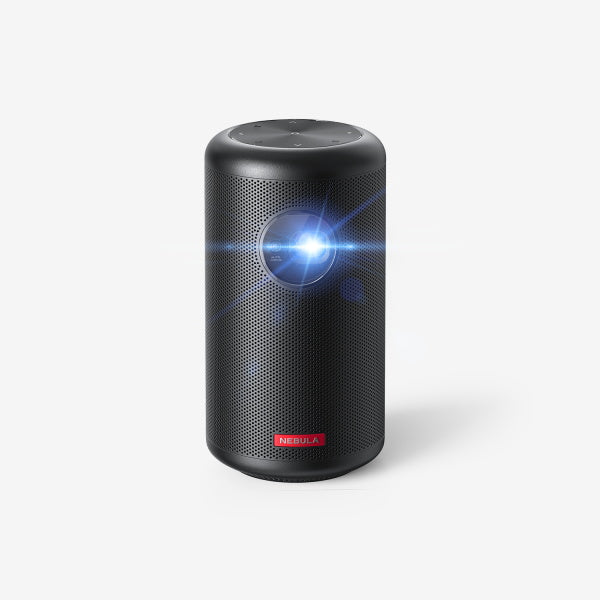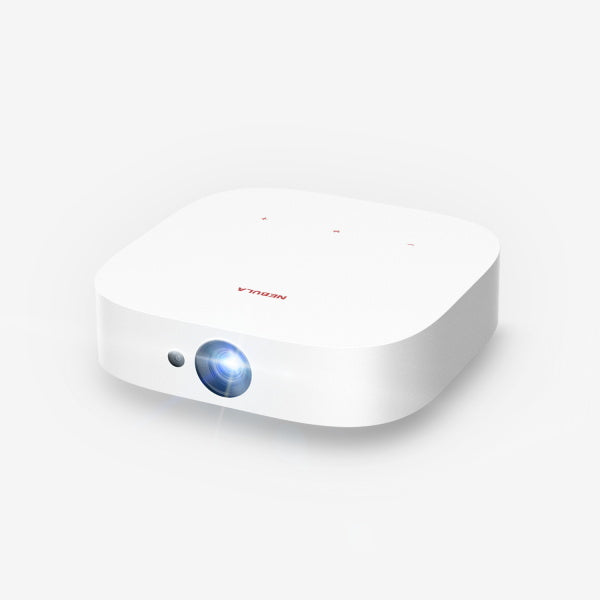Bathing your visual senses with astonishing details, 4K vs 1080p, two distinguished resolutions, compete for supremacy within high-definition displays. When it comes to understanding Full HD vs 4k, clarity, sharpness, and a quantum leap of
pixel density mark the battlefield. This article will plunge into the depths of what makes each resolution unique and the distinct features that set these two apart. Moreover, we'll answer the question, "Is there a big difference between 1080p and 4k for projector use?" offering you a comprehensive comparison to guide your future purchasing decisions.
What is 4K
4K, also known as
Ultra HD, refers to a type of display resolution that has approximately 4,000 pixels of horizontal resolution. This results in a high-quality image, with details that are crisp and visuals that are sharper than the lower resolutions. More specific, 4K resolution is 3840 x 2160 pixels, which means it provides four times the amount of pixels compared to Full HD resolution (1080p).
Pros
-
4K displays have a far greater resolution than 1080p displays. This means images and videos appear more detailed and clearer.
-
With more pixels, you can experience much better color transitions and gradients, making images more realistic.
-
The quality of a 4K resolution is most noticeable on larger screens, so if you want to enjoy a large television or monitor, 4K is the way to go.
-
4K is the new standard in many areas like gaming, streaming, and even broadcasting.
Cons
-
4K streaming requires a lot more internet bandwidth than 1080p.
-
While it's increasing, there's still less 4K content available compared to 1080p.
-
4K TVs, monitors, and other supporting devices, like 4K Blu-ray players or game consoles, are generally more high-priced than their 1080p counterparts.
-
4K video editing or 4K gaming requires a much more powerful computer system.
What is 1080P
1080p, also known as FHD, is a type of display resolution of 1920 x 1080 pixels. 1080p is currently one of the most common resolutions for television, internet streamed content, and DVD and Blu-ray movies.
Pros
-
Most movies, TV shows, and online streaming content are available in 1080p, making it a safe and practical choice.
-
1080p streams use significantly less internet bandwidth than 4K streams.
-
From TVs to projectors, 1080p devices are usually cheaper than their 4K counterparts.
-
1080p is much less demanding on your tech, meaning you do not need as powerful a system for gaming, streaming, or editing at 1080p as you would with 4K.
Cons
-
Compared to 4K, 1080p resolution is significantly lower, meaning it doesn't have the same visual clarity or level of detail.
-
On larger screens, 1080p displays can have lower picture quality compared to 4K displays.
-
As 4K and even higher resolutions become more widespread, there might be compatibility issues with newer content and devices.
Differences Between 1080P and 4K
-
Resolution:
Is 4K better than 1080p? Well, the main difference between 1080p and 4K lies in their resolution. 4K resolution, at 3840 x 2160 pixels, is 4 times higher than 1080p, which is 1920 x 1080 pixels. This leads to a significantly detailed and sharper image on 4K screens.
-
Content Availability:
Between FHD vs 4K, 1080p currently has more content available than 4K, although this is gradually changing as 4K becomes more mainstream.
-
Price and Affordability:
If budget is a deal-breaker for you in choosing between 4K resolution vs 1080p, then you should opt for the latter one. 1080p TVs, monitors, and even projectors are usually less expensive than 4K.
-
Data Consumption: To stream or run 4K content, you need higher data and bandwidth compared to 1080p.
-
Screen Size and Viewing Distance: 1080p or 4k? Larger viewing screens better utilize the benefits of 4K resolution, and so do closer viewing distances. With 1080p, the larger the screen and the closer the view distance, the experience may become less satisfactory.
Is 4K Better than 1080P in Projector
A
4K projector is, without a doubt, way better than a 1080p one. 4K, or 3840x2160 resolution, offers four times the pixel count of Full HD 1080p (1920x1080). Greater pixel count results in a significantly more detailed and clearer image. With 4K resolution, you get sharper images, superior color depth, smoother lines and textures, less visible pixelation, and a more immersive visual experience due to the higher level of detail and realism.
However, while 4K clearly won in the battle between 4K vs 1080p projector in terms of image quality, it's also critical to consider factors such as the viewing distance, content availability, and price before deciding. The benefits of 4K shine at closer viewing distances and with larger screens. As for content, more and more platforms offer 4K content, but Full HD still dominates. Meanwhile, a 4K projector typically costs more than a 1080p projector. While 4K projectors are becoming more affordable, they are still higher in price compared to
1080p projector. Therefore, whether 4K is a better choice would depend on the application as well as your budget.
At Nebula, we pride ourselves on pioneering the frontier of cinematic experiences. Our 4K projectors are the epitome of visual brilliance, designed to dazzle with unparalleled clarity and detail, perfectly suited for those seeking the zenith of home theater experiences. On the other hand, our 1080p projectors, while ensuring sharp and vivid visuals, place emphasis on versatility and adaptability, catering to a broad range of entertainment and professional needs. With Nebula, whether you're delving into the richness of 4K projectors or the balanced performance of 1080p projectors, you're always in for a visual treat.
Conclusion
So, as you stand at the crossroads of resolution, contemplating 4K vs 1080p, remember every path tells a different tale. Ignite your visual experience with 4K's lifelike details or revel in the excellent balance of quality and performance 1080p offers. Embrace the screen's charm, whether it's displaying your favorite game's graphics in stunning 4K or your most loved movie via an exceptional 1080p projector. The choice, ultimately, falls upon you - a spectator desiring to feast your eyes on radiant images that best resonate with your viewing aesthetics.
FAQ
Below are some frequently asked questions about 4k vs 1080p.
Is it worth upgrading from 1080P to 4K projector?
Yes, it can often be worth it; however, it largely depends on several factors. For individuals who value sharper and more detailed image quality, the upgrade from a 1080p to a 4K projector may be significantly beneficial. Also, if you tend to use the projector in a larger space or frequently watch high-detail content like nature documentaries or feature films, the clarity and enhanced detail of 4K would be very noticeable. However, keep in mind that the price of 4K projectors is generally more expensive, and you'd also need access to 4K content to fully utilize the upgrade.
Can the human eye tell the difference between 1080P and 4K?
The human eye's ability to discern the difference between 1080p and 4K largely depends on viewing distance and screen size. In certain situations, especially on larger screens or when sitting closer to the display, the eye can certainly perceive a difference, with 4K delivering a clearer, more detailed picture. However, as the viewing distance increases or the screen size decreases, it becomes progressively harder for the human eye to distinguish between the two resolutions.
































